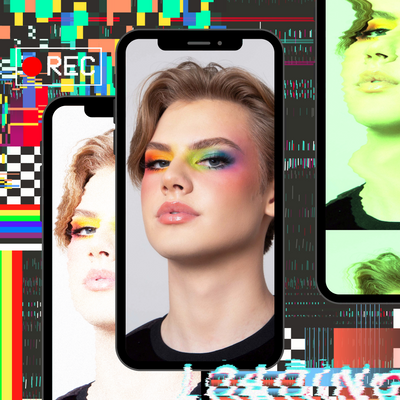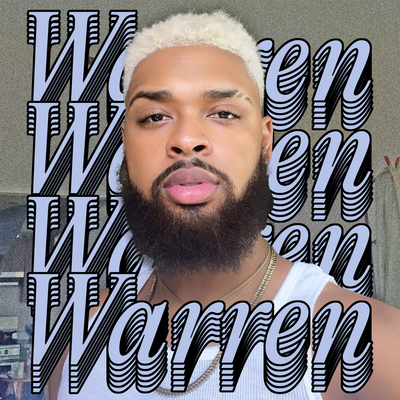In case anyone forgot – which it seems like some of y’all have (looking at you, Jake Paul) – we are currently in a pandemic.
COVID-19 has infiltrated every single aspect of our lives, from our homes to our careers, to our lifestyles. Though businesses big and small have had to rapidly adapt to this unpredictable predicament, the industry of beauty services is playing a different game.
Most beauty services, whether it be brow waxes or balayage, encompass some sort of hands-on experience. More often than not, these services require a relationship between employees and clients. In an industry where touch is everything, how can businesses go on safely?
SEE ALSO: What’s the deal with oatmeal skincare?
Very Good Light caught up with a few business owners in the beauty and fashion industry to see how they are doing in this time of uncertainty.
Limited services for waxing
Traci Krauss owns a Waxing the City franchise location in Natick, Massachusetts. Her store has been open for just over four years. “2020 was going to be our breakout year, where we were definitely on track to see revenue. Enter COVID-19,” she tells Very Good Light.
“Small businesses were particularly hit much harder, having to shut down,” Traci says. “We reopened from our total shutdown on June 22, and the first two weeks we were open were insane. It was a good problem to have, but now there’s definitely been a drop in the number of people. I attribute that to the obvious: fear, the unknown, but I also think – and this is speculative – that people have gone months without this service, and don’t feel a need to have it done regularly anymore.”
As a small business owner, Traci has had to pertain to the Massachusetts state guidelines throughout Waxing the City’s slow reopening process. Her store is doing all that they can to make sure their clients feel safe if and when they come in.
“We are all masked – you have to come in a mask, that’s not an option. We have people wait outside, and they either text us or call us, and we let them in when their cerologist is ready. We take everyone’s temperatures and offer hand sanitizer right away. Also, we installed an industrial-grade UV light system in our HVAC system, which helps combat bacteria, viruses, odors. Barberside, one of the main disinfectants we use in this industry, had a certification course that we all took. After each client, there’s time set aside to disinfect all used areas. We installed touchless soap dispensers in our bathrooms, and wall sanitizers in each of the wax rooms.”
Even the services themselves are forced to be limited, Traci says: “Anything under the mask – nose, lip, chin, sideburns, cheeks – we weren’t offering at the beginning, because that meant you would have to take your mask off. I had a couple of waxers who were then comfortable doing it, but right now, since there’s been an uptick in cases, I’ve taken those off the table. I want to respect and protect my employees.”
Though her business has been forced to take an unexpected turn, Traci is grateful to have at least some clients in-store. “Of course, we’re hopeful that we can return to our level of pre-COVID operations. We’re doing all that we can to ensure that people feel safe when they come here, but people will decide for themselves. So, I’m okay to sit tight as long as we don’t have a full shutdown again. I think having to do it again would cost us everything.”
Virtual facials are the new no-touch treatment
As Traci faces struggles in dealing with the best way to survive with live clients, some businesses are forced to remain strictly virtual. Michael Pollak is the co-founder and Chief Experience Officer of Heyday, a chain of facial shops in New York, Los Angeles, and Philadelphia that specializes in skincare education.
“We’ve been consistently growing as a company for five years now,” says Michael. “The weeks leading up to the shutdown broadly in the country were our strongest weeks to date. The weekend before was literally the best weekend we’ve ever had, to then, the next Saturday, get everything from your lockers, we’re closing, and we don’t know for how long. It was pretty dramatic.”
Based on where New York, California, and Pennsylvania are in their reopening phases, Heyday has remained unable to open whatsoever. All of their shops remain closed, and they’ve had to let go of some of their team members.
Despite the fact that the most prominent leg of their business has been stunted for the time being, the Heyday team has taken COVID in stride and is using the pandemic as a motivation to grow, rather than seeing it as a deterrent.
“As our company has grown and as we’ve been accelerated by COVID, the question has been how do we broaden that mission beyond and take what estheticians have traditionally been known for, into helping their clients on the days that they’re not getting a facial in-shop,” Michael says. “While the shops can’t be open, and we can’t serve the clients in a high-touch way, we’ve been trying to zoom forward the work on building a platform that connects the expertise and advice of our skin therapists and our clients, so that when we can reopen shop there’s just a stronger platform.”
Heyday is launching a slew of virtual options, working to extend the experience of a live facial in a digital way. They’re expanding the number of brands and products available to consumers, no longer limited by the shelf space in their stores. They’ve launched an ambassador program so that their employees, AKA “skin therapists,” can virtually recommend and sell products directly to their clients. And they’ve also created a brand new “skin quiz,” which mimics how a skin therapist would intake information about you and then make recommendations.
“It’s a master recommendation engine for what a full routine could look like for you. The intent isn’t for someone to purchase all these products at the end, but to say based on the data, here’s a smart place you can start your shopping journey.”
Once you have your results, you can head to their online chat feature, which allows you to talk through your queries and comments with a live Heyday team member. “If you’re chatting on the website, you’re actually chatting with a licensed esthetician. As our shops open back up again, it’s a great opportunity for a team member who is perhaps in between appointments and could be helping three clients during that time period, earning commission and extending the reach beyond the walls of the spa.”
Heyday is slowly entering the space of virtual beauty, a place where many beauty businesses have existed prior. Although COVID has enhanced our need for the digital, virtual companies are not exempt from the reach of COVID – in fact, they perhaps must adapt even more.
Personalized shopping to replace in-store retail
The beauty industry isn’t the only one attempting to offer a personalized experience in a virtual world. The retail industry is, too. Denise Rosenblum, the Senior Managing Partner of J. Hilburn, a men’s personal styling company, describes how the company has honed in on their transparency to their clients in this everchanging pandemic.
When it comes to clothes shopping, people often think of online or in-store experiences, but what about when the store comes to you? J. Hilburn has been doing personalized shopping since before the pandemic.
“We bring the store to the customer. We go to the customer’s home or office, take measurements, and fit our clients in fabulous custom clothes for all occasions.” Denise tells Very Good Light. For anyone who finds shopping a chore, J. Hilburn makes shopping one less thing to worry about. But what has happened to personalized shopping since COVID?
“Before COVID, I would make appointments to see my clients in person at their homes or workplaces. Now I have to be extremely careful and only meet clients in an outdoor setting and we both have to wear a mask,” Denise explains. But this hasn’t stopped the company. If anything, they have just adjusted to life with COVID-19.
“Our company has been amazing. They have targeted direct marketing to our clients reminding them that we are still open for business. They have shifted their product offering to sell more casual clothes for the work-from-home environment.”
While many retailers have missed the mark and struggled with finances on top of client loss, J. Hilburn has stayed dedicated to making the health and safety of their clients their first priority.
“The most important thing we can do is stay in touch with our clients and let them know we are thinking about them and that our primary concern is their family and their health. We are also selling masks using the same material that we use for our shirts and we are donating a portion of the proceeds to a charity to help COVID victims.”
Though none of us can see the future, taking life day-by-day seems to be the best action for all of us to take. While life has slowed down, it surely hasn’t stopped. Even though there is so much still unknown, we are learning new ways to adapt, live, and create during this pandemic. We asked these businesses what they think is next for their respective industries.
Beauty and fashion shopping in a COVID-19 world
“I think in the next few months we’re going to continue to see the trend increase of people spending on skincare, and we’re probably going to see makeup take a bit of a backseat for now with everybody working from home,” says Michael of Heyday. “Skincare is a part of whole-body health. Things manifest in our skin when we’re underslept or overstressed, things that a lot of people are going through right now, and skincare can be that small indulgence.”
For retail, it might be just a little trickier. “Even when COVID is over people are not going to want to go into stores as frequently to shop,” says Denise of J. Hilburn. “It is going to take a long time for retail to go back to an in-person experience. People are used to shopping online and may appreciate that experience more than going into a store. But, that is why I think J. Hilburn is perfectly poised to own the men’s retail marketplace in the future.”






